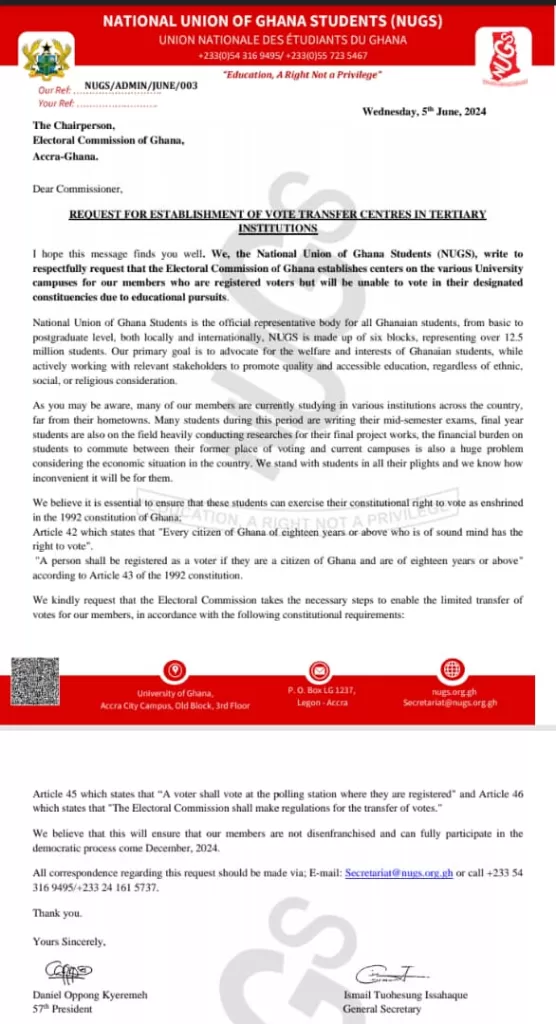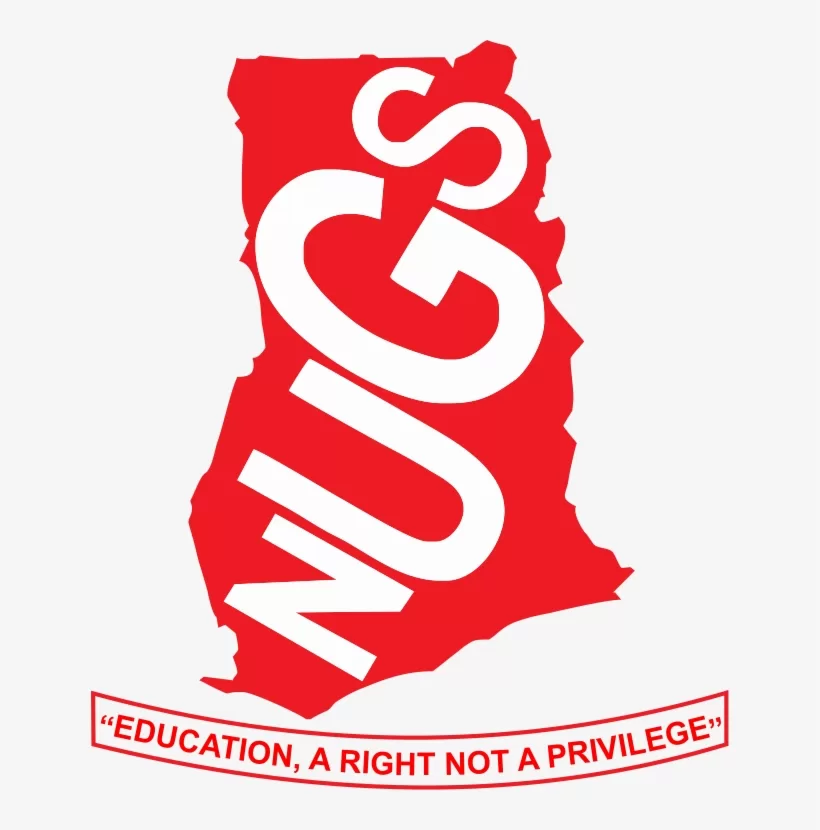The National Union of Ghana Students (NUGS) has made a formal appeal to the Electoral Commission (EC) to establish voter transfer centers on university campuses. This request aims to facilitate the transfer of votes for students who are registered voters but will be unable to cast their votes in their designated constituencies due to academic commitments.
NUGS, the official representative of all Ghanaian students, boasts a membership of over 12.5 million students across various educational levels and institutions, both locally and internationally. The organization is composed of six blocks and is dedicated to championing the welfare and interests of Ghanaian students.
NUGS actively collaborates with relevant stakeholders to advocate for accessible and quality education for all, regardless of ethnic, social, or religious backgrounds. In a statement released on Wednesday, June 5, NUGS explained that the request was prompted by the fact that many of its members are currently pursuing their studies in institutions far from their hometowns.
The statement highlighted the challenges faced by students, including mid-semester exams and final-year project research, which make it difficult for them to commute to their former voting locations. The financial strain of commuting, especially in the current economic situation, was also cited as a major concern.
NUGS emphasized the importance of ensuring that students exercise their constitutional right to vote, as stipulated in the 1992 constitution of Ghana. Article 42 states that every citizen of Ghana who is 18 years or above and of sound mind has the right to vote. Article 43 further states that a person shall be registered as a voter if they are a citizen of Ghana and 18 years or above.

The organization kindly requested that the EC take necessary steps to enable the limited transfer of votes for its members, in accordance with constitutional requirements. Specifically, NUGS referenced Article 45, which states that a voter shall vote at the polling station where they are registered, and Article 46, which states that the EC shall make regulations for the transfer of votes.
NUGS believes that this will ensure that its members are not disenfranchised and can fully participate in the democratic process come December. The organization’s appeal is aimed at ensuring that students’ voting rights are protected and that they can exercise their civic duty without undue hardship.
The EC is yet to respond to NUGS’ appeal, but the organization remains hopeful that its request will be granted. NUGS’ efforts aim to ensure that Ghanaian students’ voices are heard in the democratic process and that their rights are protected.
NUGS’ appeal to the EC highlights the importance of ensuring that all eligible voters, including students, are able to exercise their constitutional right to vote. The organization’s efforts aim to promote democratic participation and ensure that Ghanaian students’ voices are represented in the political process.
